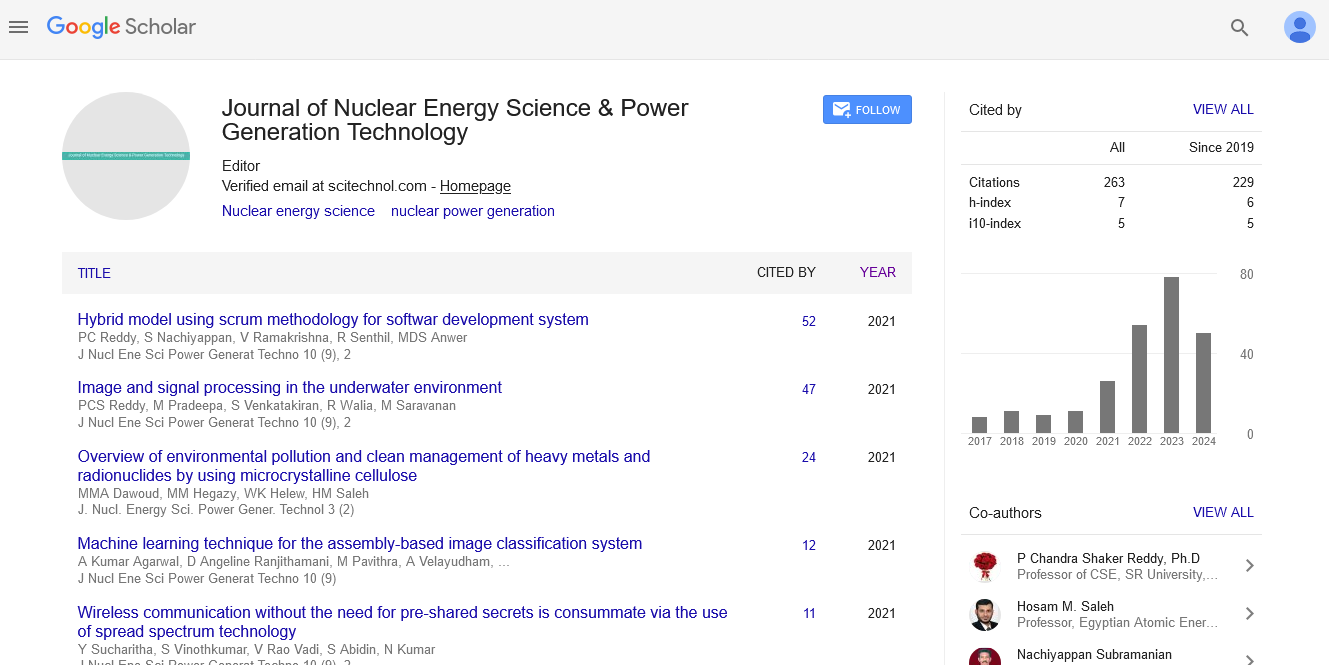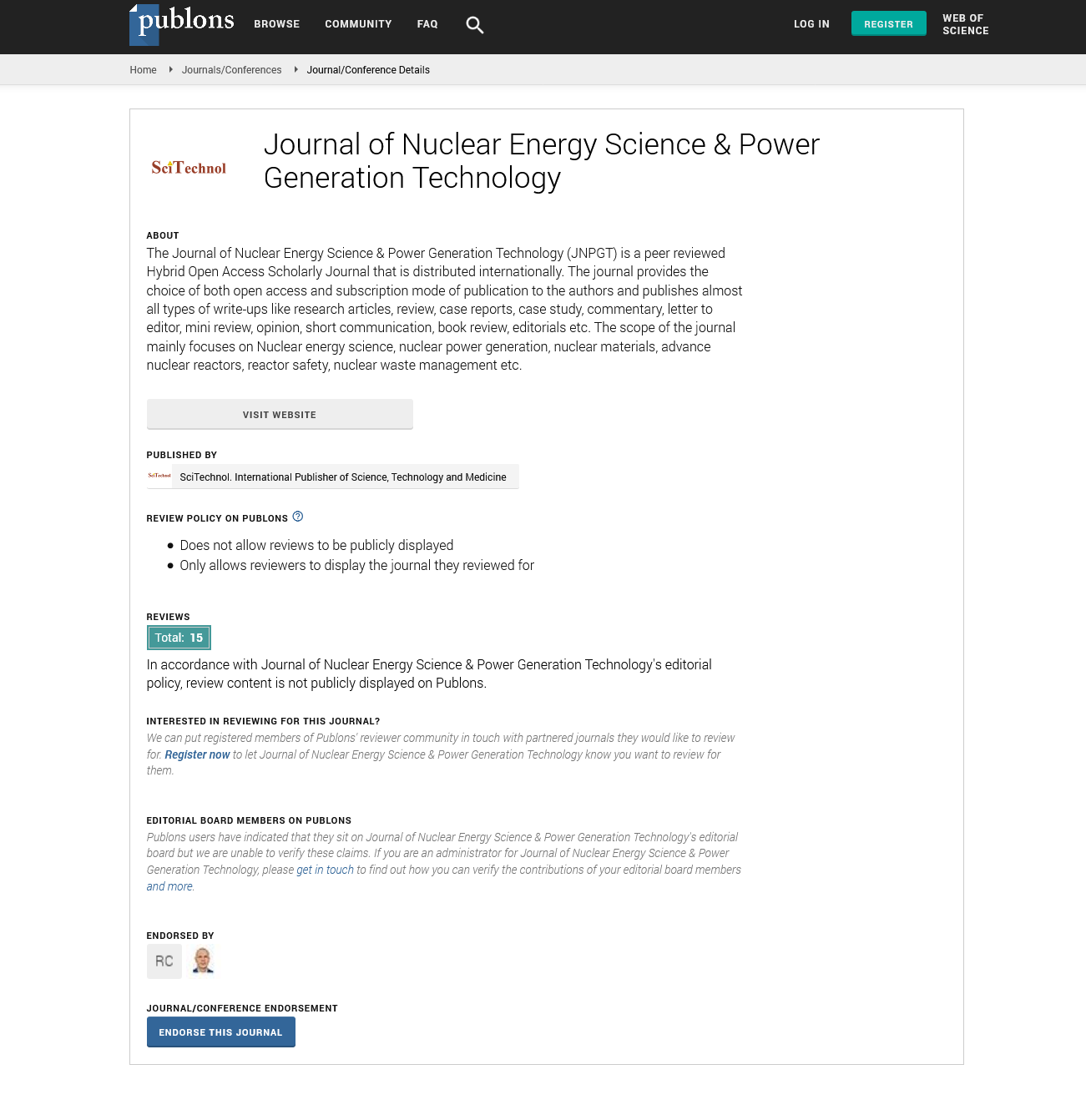Nature of interconnectors and the role of the Norwegian storage capacity
Irina Stamo
IKEM, Germany
: J Nucl Ene Sci Power Generat Technol
Abstract
The installed capacity of hydropower contributed 16% of a worldwide electricity supply. This makes a renewable and highly flexible source hydropower with its capabilities and unique role in the nature very important for modern electricity systems, not only due to production issues, but also because of coordinating the operation of hydropower plants with other types of generating units. Doing so, hydropower is able to stabilise fluctuations between demand and supply, to alleviate challenges dealing with the volatile character of renewable energy sources. This is where Norway comes into play as the sixth largest hydropower producer in the world and the largest in Europe, having large pumped storage capacity. The need for compensation of the difference between production and consumption of increased levels by wind and solar power generation in Europe shows the feasibility of the bigger design power output of the Norwegian hydroelectric power plants. Their capacity is directly dependent on how much power can be provided in scarce periods and how much power can be absorbed in case of overproduction. Here comes an idea of energy exchange. Interconnectors will be built today not only as a back-up option for failures and shortages, but increasingly with a purpose of connection of different energy markets. Interconnectors bring a sustainability aspect along: By trading decarbonised hydro and wind power, cables integrate renewable energy into European electricity grid. Idea of such transnational cables is based upon a possibility and a wish of exchanging the electricity with national systems being in “power surplus”, additionally adding value to the security of energy supply. Driven by a concept of internal electricity market in Europe, cross-border interconnections aim to foster competition, promote trade and provide incentives for development of new market models which may improve overall welfare.
Biography
Irina Stamo holds a Bachelor’s degree in Economics with a major focus on the European Economy. She expanded her knowledge by receiving her Master’s degree in Political Economy of European Integration from the Berlin School of Economics and Law. She is currently a Research Associate at the Institute for Climate Protection, Energy and Mobility (IKEM), working on projects dealing with energy efficiency, sector coupling, and urban renewal. Before joining IKEM, she has gained experience amongst others at the German Energy Agency (dena), German Solar Association and Arepo Consult. She has been involved in different projects and scientific activities, dealing with energy efficiency, European Energy Policy drafts, LNG, energy storage as well as the National Solar Market. She has done extensive scientific research dealing with the Norwegian energy market, which she intensifies in her ongoing PhD thesis at the University of Flensburg as well as Environmental Research Center in Berlin.
Email: irina.stamo@ikem.de
 Spanish
Spanish  Chinese
Chinese  Russian
Russian  German
German  French
French  Japanese
Japanese  Portuguese
Portuguese  Hindi
Hindi 

